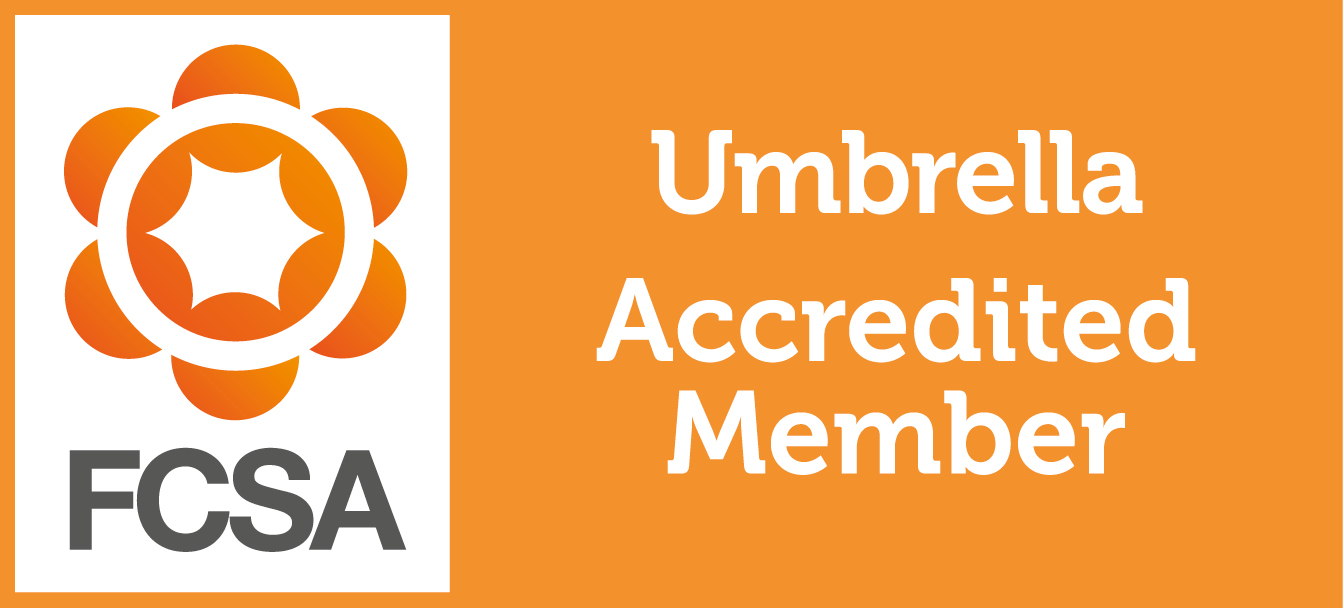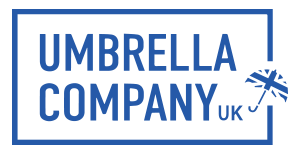
Navigating and understanding the compliance of umbrella companies can be daunting for contractors, but it’s essential to avoid falling into the trap of operating through a non-compliant provider. Our latest article provides valuable information about how to determine if your umbrella company is compliant.
Is the umbrella company accredited?
It is essential that you only use compliant umbrella companies for your payroll. One way to check that the umbrella company you want to use or are already using is compliant is to check that they are SafeRec Certified or FCSA-accredited.
SafeRec
Powered by AI, SafeRec is a leading compliance and technology company that audits umbrella companies in real-time, at source, to ensure no signs of malpractice. Every payslip and payment generated by a SafeRec Certified umbrella is cross-referenced with RTI sent to HMRC. RTI payments are cross-referenced with the umbrella company’s HMRC tax account.
Every time a Certified SafeRec Umbrella Company employee is paid, they’re emailed a payslip report by Payslip Buddy (powered by SafeRec). The payslip report provides a thorough breakdown of the payslip – allowing you to check that the umbrella company has processed your pay compliantly and per HMRC’s regulations. If SafeRec finds any signs of malpractice, this will be flagged in the report, and all supply chain members will be alerted.
To see if an umbrella company is SafeRec Certified, please check the list of certified umbrella companies on the SafeRec website.
FCSA
The Freelancer & Contractor Services Association (FCSA) is a UK membership body dedicated to ensuring the supply chain of contractors, freelancers, and all temporary workers complies with HMRC legislation and UK tax law and that all organisations in the supply chain operate ethically. To attain FCSA accreditation, companies must undergo a strict audit and assessment to prove they operate compliantly. All the information gathered is shared with HMRC.
To see if an umbrella company is FCSA accredited, please check the list of accredited members on the FCSA’s website.
Understanding IR35 and off-payroll legislation
IR35 and off-payroll legislation are some of the most significant pieces of legislation which affect contractors and ultimately determine how they can operate. IR35 came into effect in April 2000 as a way for HMRC to distinguish between a genuinely self-employed contractor and a disguised employee. A disguised employee is a worker who supplies their services to end clients via an intermediary – such as a limited company – who operates in the same way as an employee and would be an employee if the intermediary was not used. IR35 was a way for HMRC to collect taxes and National Insurance Contributions (NICs) from disguised employees who avoided paying the correct tax.
In April 2017, off-payroll in the public sector was introduced to tackle tax avoidance through intermediaries in the public sector. Off-payroll in the public sector shifted the responsibility of determining the employment status of the individual working through an intermediary to the public sector client engaging them. Before April 2017, this responsibility fell on the individual. The reforms also meant the fee-payer is responsible for deducting income tax and NICs before making a net payment to the contractor for the work completed. On the 6th of April 2021, the reforms were extended to the private sector, and the same rules were implemented.
Inside IR35
If you are inside IR35, it means that HMRC deems the terms of your engagement to reflect a service of employment, not self-employment, and you must pay income tax and National Insurance Contributions (NICs) just like your permanent counterparts. For contracts inside IR35, one of the easiest ways to work as a contractor is via an umbrella company. Using an umbrella company means there is no risk of being caught by IR35, as you will be taxed like a permanent employee.
Outside IR35
If you are outside IR35, you can become a limited company director and pay yourself tax-efficiently with a combination of salary and dividends. You will be responsible for paying your own taxes to HMRC.
Understand the tax obligations
The legislation was introduced to ensure contractors are paying the correct amount of tax, and it is essential to understand the legislation and how it affects you. If you have accepted a role inside IR35, you cannot receive a gross payment for the work completed for this assignment. Any umbrella companies advertising this or claiming it is a legitimate way to operate are most likely a tax avoidance scheme, and you should not use them.
Understanding how compliant umbrella companies will pay you
Understanding how an umbrella company should pay you and the tax deductions that should be made will help you quickly spot if you are using a compliant umbrella company or not. It is also important to understand the difference between the assignment rate and the gross rate of pay and the deductions that will be made to each.
The assignment rate is different to your gross rate of pay as the assignment rate includes funds for the umbrella company to cover employment costs. Meanwhile, the gross rate of pay is the actual wages payable to you (before tax deductions). Employment costs will never be deducted from your gross rate of pay. The employment costs are:
- Umbrella company margin
- Employer National Insurance Contributions
- Employer workplace pension contribution (if you do not opt out of the workplace pension)
- Holiday pay
- Apprenticeship levy (if applicable)
Your gross pay rate is the amount left after these deductions. The following deductions will be deducted from your gross rate of pay and paid to HMRC on your behalf:
- Income tax
- Employee National Insurance Contributions
- Employee workplace pension contributions (if you do not opt out of the workplace pension)
- Student loan repayments (if applicable)
- Any other deductions that you have agreed to or are legally required to pay
The amount left is your net pay, and this is the amount that will be paid into your bank account. It is essential to highlight that some umbrella companies will pay the National Minimum Wage rate for hours worked and make up the rest of the amount you are due with an additional payment, often listed as a bonus. Tax must still be calculated and paid on this additional payment or bonus and must be clearly listed on your payslip. For more information about getting paid by an umbrella company, please visit the government’s website.
Check your payment and payslip
A good understanding of how you should be paid is the first step, but checking each payment and cross-referencing it with your payslip is the best way to ensure you are not caught up in a tax avoidance scheme. Each payslip should list all the tax deductions made, and the money you receive in your bank account must match the net pay on the payslip.
You should never receive more money in your bank account than what is shown on your payslip or receive untaxed payments like capital advances or loans. For more information about your payslip and how to check your tax deductions, please visit the government’s website.
All Umbrella Company UK employees can check their payslips using Payslip Buddy
All Umbrella Company UK employees are emailed an audit by Payslip Buddy (powered by SafeRec) every time they are paid by us, which provides a breakdown of their payslips and checks they have been paid compliantly and per UK tax law.
Is the umbrella company transparent and well-reviewed?
With many untrustworthy umbrella companies on the market, it’s essential to choose a well-established, highly regarded, and compliant provider. From the initial enquiry call, throughout the registration process and for the duration of your employment with the umbrella company, they should be transparent and informative about the service, the tax deductions and what is required by all parties to ensure your assignment runs smoothly.
An excellent way to check if an umbrella company is well-reviewed and discover how other contractors have found the service is to check the reviews on Google or Trustpilot or even look on contractor forums. There is no better way to find out what a company is like than by reading fellow contractors’ experiences.
Be vigilant and avoid tax avoidance schemes
Unfortunately, thousands of tax avoidance schemes target UK-based contractors, and HMRC regularly sends warnings to temporary workers to avoid getting caught out by non-compliant umbrella companies. Tax avoidance schemes come in many different forms. However, the most common tax avoidance schemes involve giving a worker some or all of their pay in what is claimed to be a loan, salary advance, annuity, grant or any other payment which contractors are often told they are not expected to pay back.
The payments are portrayed to the contractor as non-taxable, often without explanation as to why, but simply with the promise of higher take-home pay. In reality, these payments are deemed regular income; therefore, tax deductions should apply to the entirety of the payment. We strongly advise you not to consider using a tax avoidance scheme as those who join tax avoidance schemes end up having to pay back all the tax due, as well as interest and penalties – you could end up facing a massive tax bill.
There is a lot of information on the government’s website to educate yourself about tax avoidance schemes and how to spot the signs of a tax avoidance scheme. The government has also released a list of current named tax avoidance schemes, promoters, enablers, and suppliers for you to watch out for.
Reporting a tax avoidance scheme to HMRC
If you think you might be involved with or use a tax avoidance scheme, please contact HMRC. They will offer support and guidance about how to get out of the scheme and settle your tax affairs.
You can also report a tax avoidance scheme if:
- You are aware of a tax avoidance scheme
- You have been encouraged to get into a tax avoidance scheme
- You want to let HMRC know about someone selling tax avoidance schemes
If any of the points above apply, you can complete HMRC’s online form. You can do it anonymously or give your name. Please remember to use the code “TAC” when completing the form. Alternatively, you can phone HMRC on 0800 788 887.
Everyone is responsible under UK law for paying the correct amount of tax
Ultimately, you are responsible for paying the correct amount of tax, which still applies even if you have appointed someone else to deal with your taxes or payments. You will still be liable for any unpaid tax owed to HMRC, even if you were unaware of any tax avoidance, and will be required to pay back any unpaid tax and possibly face thousands of pounds in fines to HMRC as well. Always be vigilant and conduct thorough due diligence to ensure you work with a compliant umbrella company.
Working with a compliant umbrella company can provide lots of benefits, the most prominent being that a compliant umbrella company will always calculate your tax and National Insurance and send this to HMRC on your behalf. Allowing you to conduct your contract work without worrying about how much tax you need to pay and when to HMRC.
Umbrella Company UK is SafeRec Certified and FCSA accredited
Umbrella Company UK is a leading SafeRec Certified and FCSA-accredited umbrella company, and we help hundreds of contractors get paid legally and compliantly every month. If you want a free take-home pay illustration or more information about our umbrella service, please call 01707 669023. Alternatively, you can request a callback at a time that suits you, and a team member will contact you to discuss the service.






